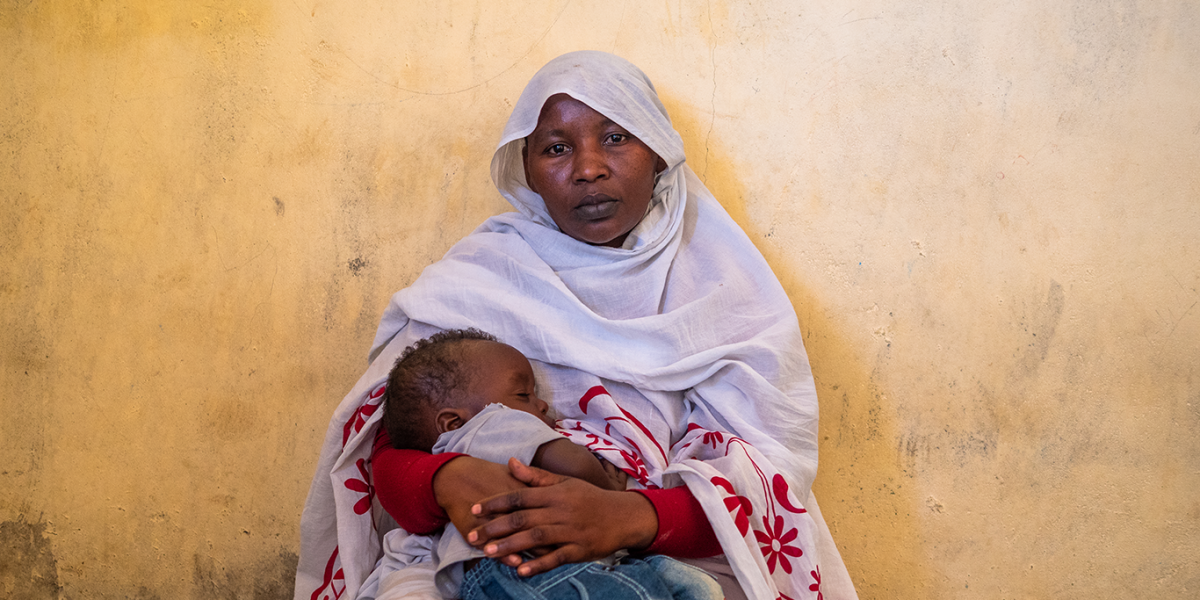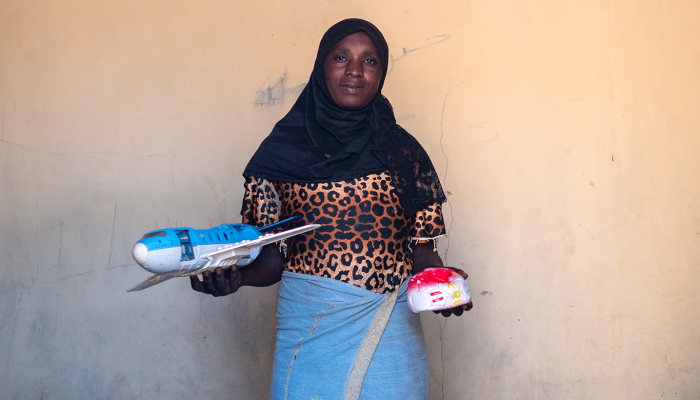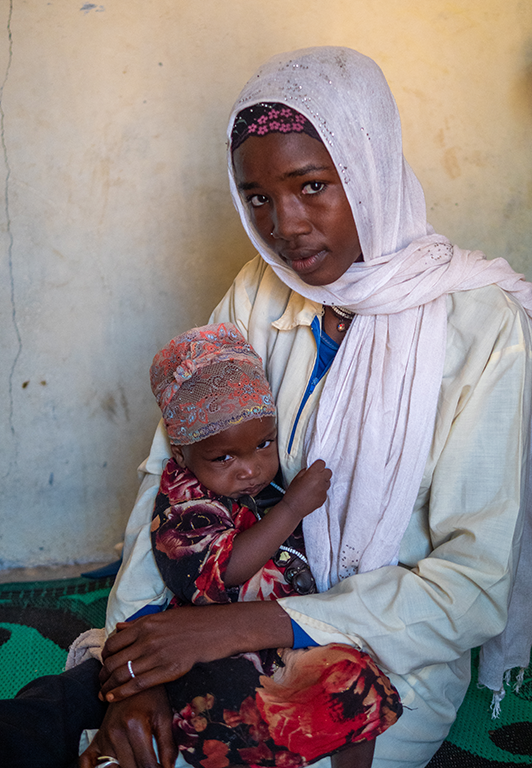Chad: Safe spaces for babies help create a future for their mothers
26 January 2021

Sleeping on warm blankets, the babies don’t seem to notice the heat and laughter coming from the school playground outside. They have sung songs, played, and listened to tales inside the shaded room. Their mothers might come along during the morning to feed them till, at midday, classes finish, and it’s time to go home.
This nursery is situated beside the primary and secondary school in Kounoungou Refugee Camp, Eastern Chad – mostly hosting Sudanese citizens fleeing conflict in Darfur. The nursery was built in 2012 by the Jesuit Refugee Service (JRS) Chad and UNHCR. In refugee and local communities across the country, thousands of girls drop out of school due to early marriages and pregnancies. With limited assistance from their husbands and public institutions, many women struggle to maintain a job while taking care of their family.
Safe spaces such as nurseries in educational centers help young mothers and teachers to go to school, while their children are accompanied and entertained nearby. More than 42 babies are brought to both rooms in Kounoungou camp every school day.

Raouda, one of the three assistants in the primary school nursery, walks among little airplanes, dolls, puzzle pieces, and children scattered over colorful carpets. Living in the camp since 2004, has been working in the nursery for over nine years: “What motivates me of my job is to help girls and teachers to do their work,” Raouda explains.
“Education is very important for the girls, since it allows them to be educated and to educate their children,” she adds.

“I bring my child every day from 7.00 am to 1.00 pm,” explains Mourra, a 22- year-old displaced in Chad since 2009. She is in 4th grade of high school and dreams of becoming a doctor. “The nursery really helped me to continue my studies,” she states.
Aicha, 32, juggles teaching five hours a day at the school with being a mother of five. She works the same hours as a man, but domestic duties wait for her in the afternoon. It is difficult to find a moment to rest since she must also prepare the next day’s class at home. She had to go back to work forty-five days after giving birth to her latest son. “It wasn’t enough because he is too small,” she states.
“The nursery helps me a lot since my mind is calm while I work,” Aicha explains, “I leave my baby here and I am sure that he is safe and well cared for”. She can work two hours, breast feed him on class-break, and go back with her students normally.
Both Aicha and Raouda would like more investment in the centres. They find the space too small and there is a need for toys and blankets to help their babies to rest and enjoy everything to the upmost while waiting for their mothers.



